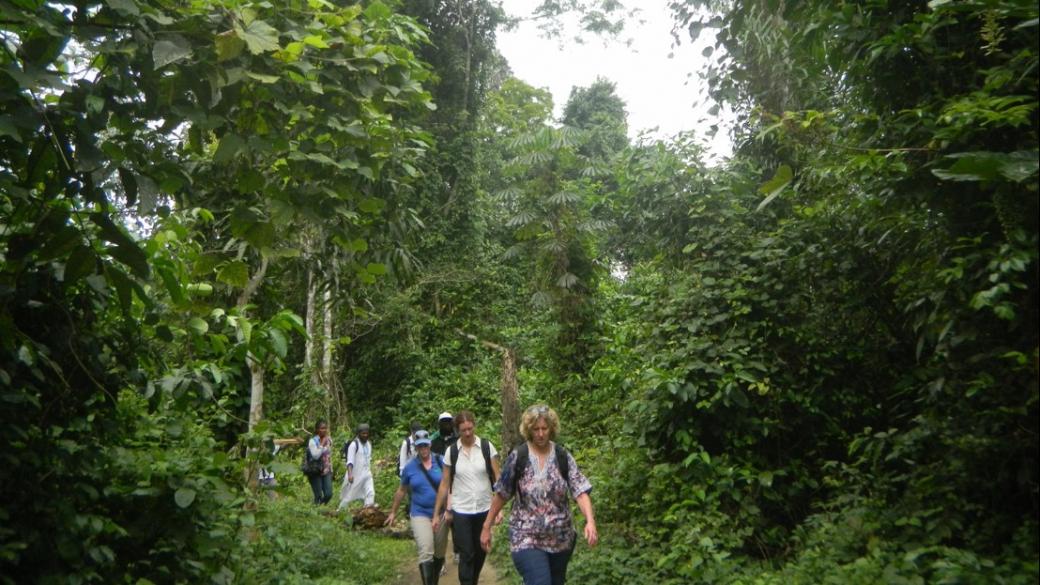
Denise is an anthropologist who has been working at the CDC since 2001. From 2001-2003 Denise was an Epidemic Intelligence Surveillance (EIS) officer in the Division of Reproductive Health. Since graduating from the 2-year EIS program, Denise has worked as a behavioral scientist in the Division of HIV/AIDS (2003-2007), the Division of Parasitic Diseases and Malaria (2007-2015), and, more recently, the Division of Global Health Protection (2015 to present).
As a Peace Corps volunteer in Gabon, Central Africa from 1982 to 1986, Denise taught beginning and intermediate English courses to seventh and eighth grade students in a small rural town. “From 1985-1986, I extended my Peace Corps service to work as Peace Corps health educator in a maternal and child clinic,” says Denise. “I helped train village health workers in home-based oral rehydration and helped organize neighborhood growth monitoring clinics for children under age five.”
Because of her experience working on maternal and child health issues in Gabon, she decided to get a Masters of Public Health degree (MPH) after her return home. “During the last quarter of my MPH program at UCLA, I took a course in medical anthropology and absolutely loved it! The anthropological approach to research reminded me a lot of my Peace Corps experience…living with and learning from people from a different culture. As a result, I decided to pursue doctoral studies in Anthropology. My doctoral research took me back to Africa, this time to Tanzania, where I conducted an anthropological study of women's experiences of pregnancy and childbirth.”
Her Peace Corps experience is still paying off: “My experience as a Peace Corps health volunteer in Gabon was invaluable in that it had a direct impact on my career choice to become a cultural anthropologist working in public health.” In her role as a CDC Behavioral Scientist, she has drawn upon her anthropological training to help develop the formative research guidelines for the National HIV Behavioral Surveillance System and provided technical support to studies that examined community perceptions and use of malaria prevention and treatment interventions in Southeast Asia and East and West Africa.
More recently in Liberia, Denise has provided technical assistance for qualitative research that explored people’s experiences with Ebola outbreak response efforts and community perceptions of childhood vaccinations in 2017. Denise, who speaks French and Kiswahili, says it takes openness, flexibility, a willingness to learn, a respect for other ways of doing things, and a sense of humor to work effectively in different cultural settings.
